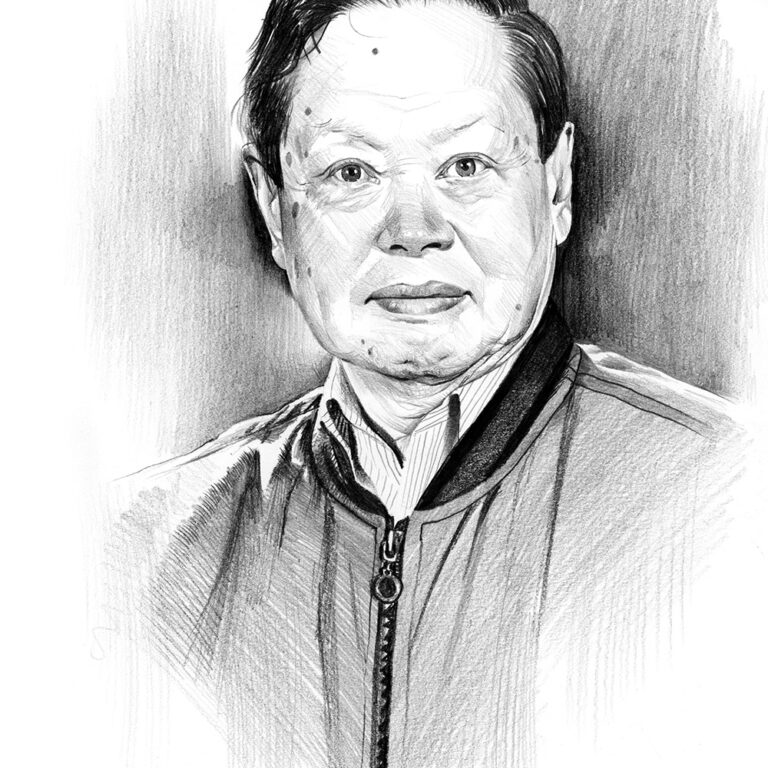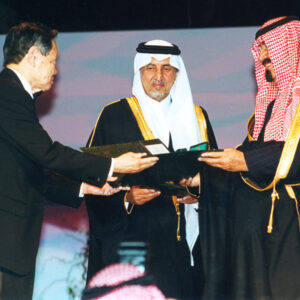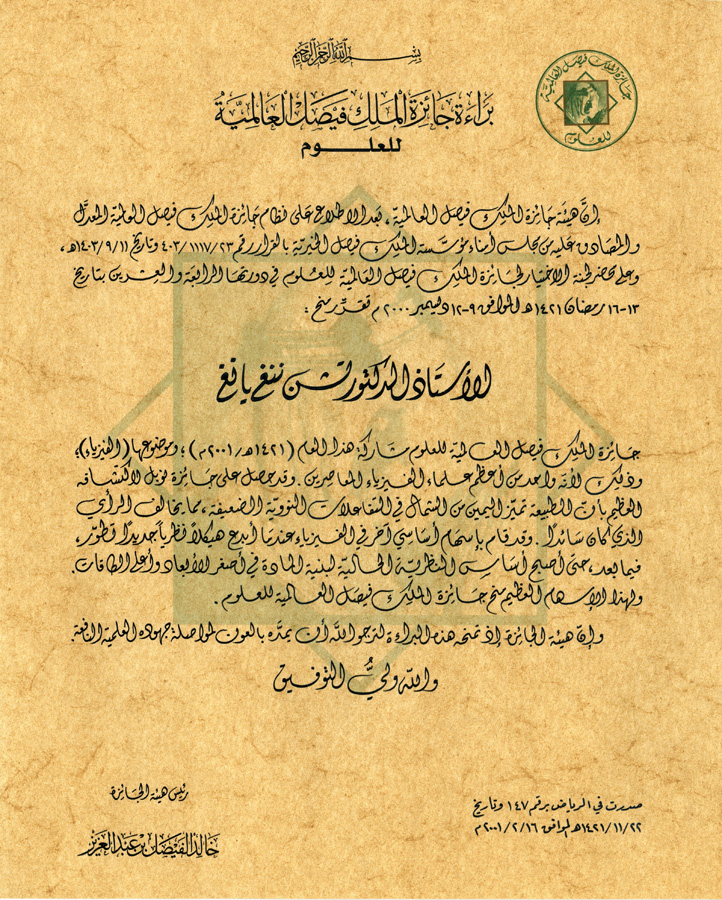

Professor Chen Ning Yang
King Faisal Prize in Science 2001 Laureate
Topic: "Physics "
I am happy that this trip to Saudi Arabia allows me to experience in person another of the ancient and great cultures of the world

Chen Nin Yang obtained his B.Sc. at the National Southwest Associated University in Kunming, and an M.Sc. in Physics at Tsinghua University, China, and a Ph.D. at the University of Chicago, where he also served as instructor in 1948. The following year, Yang joined the Institute for Advanced Studies at Princeton University in New Jersey, becoming a full professor six years later. In 1965, he took the position of Albert Einstein Professor and Director of the newly founded Institute of Theoretical Physics at the State University of New York in Stoneybrook (SUNY). Following his retirement in 1999, he was appointed an Albert Einstein Professor Emeritus and an Honorary Director of the Institute of Theoretical Physics at SUNY, and a Distinguished Professor At-Large at the Chinese University in Hong Kong. He is currently an honorary director of Tsinghua University, Beijing, where he is the Huang Jibei-Lu Kaiqun professor at the Center for Advanced Studies.
Professor Yang is a renowned theoretical physicist whose research with Tsung-Dao Lee showed that the law of parity symmetry between physical phenomena occurring in right-handed and left-handed coordinate systems is violated during the decay of certain elementary particles. Prior to that, it was assumed that parity symmetry was a universal law in physics. This and other studies in particle physics earned Yang and Lee the Nobel Prize in 1957. Yang’s subsequent work with Robert Mills on the non-Abelian gauge theory (also known as Quantum Yang-Mills theory) laid the foundation for the unification of all interactions in nature. It is this latter work that was recognized by the King Faisal International Prize for Science. Yang also made fundamental contributions to statistical mechanics and the theory of quantum fluids.
Professor Yang’s profoundly deep contributions to the principles of theoretical physics were recognized by numerous other prestigious awards and honors, 18 honorary degrees, and honorary fellowships of leading international scientific academies and societies worldwide. In 1986, he received the National Science Medal, the highest American distinction in science, from the President of the USA. He was also elected Fellow of the prestigious Royal Society in London.
This biography was written in the year the prize was awarded.
In 2010, SUNY in Stony Brook honored Yang’s contributions to the university by naming its newest dormitory building “Yang College”.



